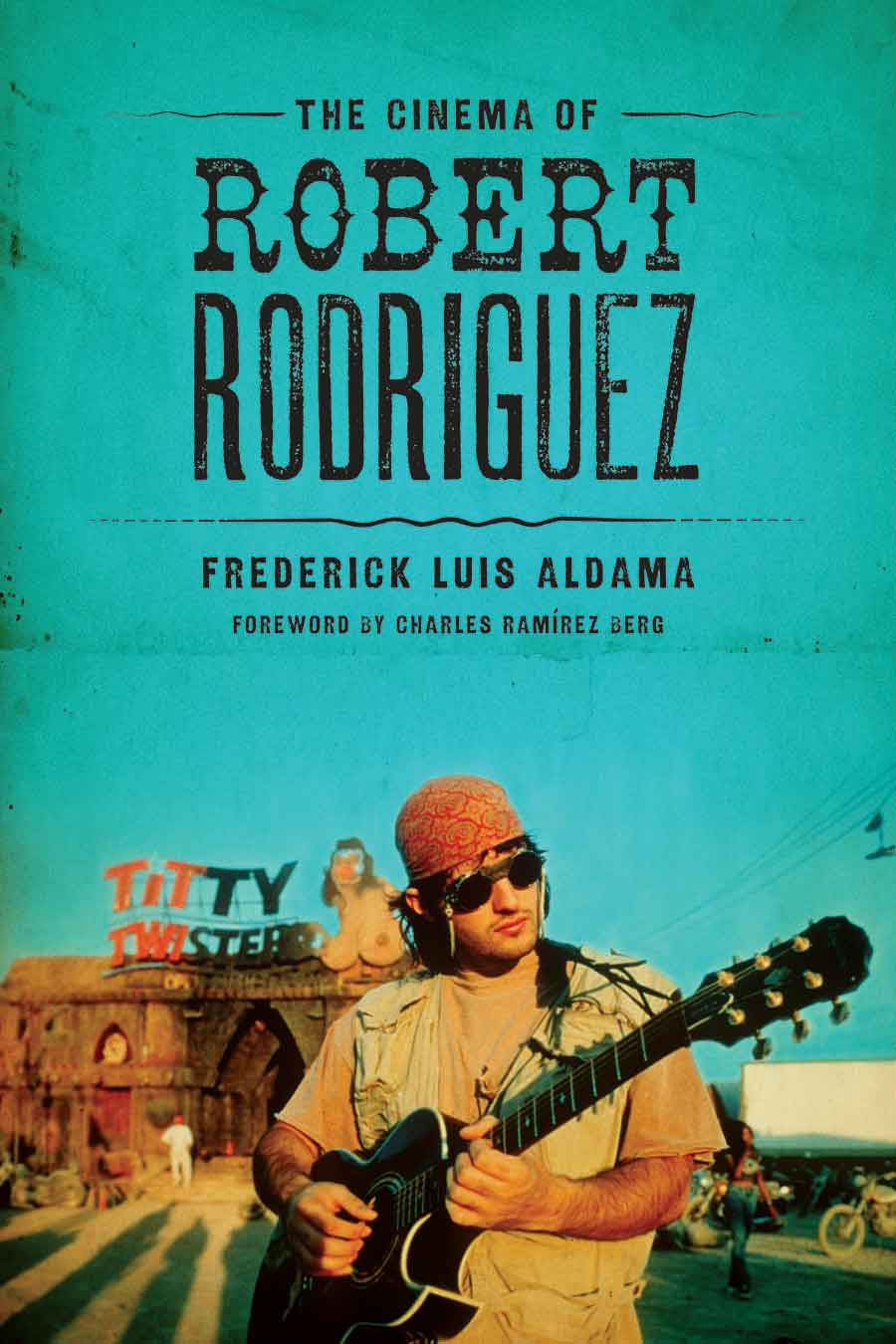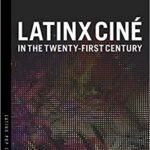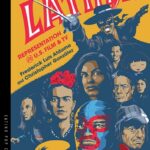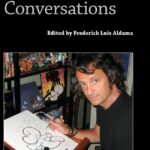The Cinema of Robert Rodriguez
Topics:

Buy
Robert Rodriguez stands alone as the most successful U.S. Latino filmmaker today, whose work has single-handedly brought U.S. Latino filmmaking into the mainstream of twenty-first-century global cinema.
Rodriguez is a prolific (eighteen films in twenty-one years) and all-encompassing filmmaker who has scripted, directed, shot, edited, and scored nearly all his films since his first breakout success, El Mariachi, in 1992. With new films constantly coming out and the launch of his El Rey Network television channel, he receives unceasing coverage in the entertainment media, but systematic scholarly study of Rodriguez’s films is only just beginning.
The Cinema of Robert Rodriguez offers the first extended investigation of this important filmmaker’s art. Accessibly written for fans as well as scholars, it addresses all of Rodriguez’s feature films through Spy Kids 4 and Machete Kills, and his filmmaking process from initial inspiration, to script, to film (with its myriad visual and auditory elements and choices), to final product, to (usually) critical and commercial success. In addition to his close analysis of Rodriguez’s work, Frederick Luis Aldama presents an original interview with the filmmaker, in which they discuss his career and his relationship to the film industry. This entertaining and much-needed scholarly overview of Rodriguez’s work shines new light on several key topics, including the filmmaker’s creative, low-cost, efficient approach to filmmaking; the acceptance of Latino films and filmmakers in mainstream cinema; and the consumption and reception of film in the twenty-first century.
What The Critics Say
Post Script: Essays in Film and the Humanities
His observations of a Tex Avery cartoon styling, as but one example, offer new ways of understanding and interpreting how directors, and Rodriguez specifically, navigate and construct characters and films. Aldama’s various identifications of the grotesque also create inroads for identifying the many ways directors create films that are both appealing and repulsive to audiences. Aldama’s text also includes an insightful forward by film scholar Charles Ramírez Berg, and a comprehensive one-on-one, in person, interview with Rodriguez. Accordingly, The Cinema of Robert Rodriguez should be considered a useful resource for Latino and film studies scholars alike.
Chiricú Journal: Latina/o Literatures, Arts, and Cultures
Within these biographical and historical contexts, Aldama crafts a checklist of filmmaking techniques and aesthetic choices common to Rodriguez’s films, and over the next five chapters illustrates how these techniques and aesthetics inform the director’s work from his earliest student films through Machete Kills.
Image & Narrative
Fusing his perspectives as a film critic, ethnic studies scholar, and comic’s specialist, Aldama has a multifaceted approach to Rodriguez’s films as he considers the aesthetics of cinema, Rodriguez’s status as a U.S. Latino, and the influence of comics on the director’s career. Moreover, Aldama also engages with Western philosophy and cognitive science as a way to understand Rodriguez’s DIY filmmaking processes and audience consumption mechanisms. Working with limited budget and technology constraints, Rodriguez learned at an early age how to create films that would “make new” audience perception, thought, and feeling about the world.
Bulletin of Hispanic Studies
Cinema of Robert Rodriguez reads as one that should inspire others to research, write and engage with Rodriguez’s films in more conventionally scholarly fashion. . . . Written with unapologetic fan delight (pace Henry Jenkins’s concept of the ‘aca-fan’) and celebratory of Rodriguez as an unabashedly Latino filmmaker, Aldama’s book would appeal to the general reader and those students interested in getting an introductory overview of Rodriguez’s career and the production and distribution context in which he has laboured.
La Bloga
Aldama does more than hit his marks: he has created an exhilarating, accessible and much-needed study of one of the most inventive and multifaceted directors to come along during the last thirty years. It is a ‘must read’ for anyone who wishes to become a filmmaker or who simply loves movies.
Alex Rivera, director of Sleep Dealer
Rodriguez gained cinematic notoriety with the image of a guitar case that concealed not a musical instrument but a weapon. In similar fashion, Aldama’s book contains many surprises and sharp-edged tools for thinking about the crossroads of film, politics, and identity. . . An explosive text!
Chon Noriega, Professor of Cinema and Media Studies at UCLA and author of Shot in America: Television, the State, and The Rise of Chicano Cinema
Aldama provides an engaging and wide-ranging exploration of one of the most iconoclastic directors working in Hollywood—someone who has pushed the boundaries of how films get made, how they tell stories, and who gets to tell these stories both in front of and behind the camera. The most comprehensive book on Robert Rodriguez not written by the director himself!
Camilla Fojas, Vincent de Paul Professor of Latin American and Latino Studies at DePaul University and author of Border Bandits: Hollywood on the Southern Frontier
The Cinema of Robert Rodriguez is a foundational text on one of the most significant artists of this generation. Applying a diverse range of approaches—cognitive, film theoretical, philosophical, and cultural and media studies—Aldama examines Rodriguez’s entire multi-genre corpus within its aesthetic, sociopolitical, and cultural contexts. This virtuoso analysis shows how Rodriguez’s films create new aesthetic objects and fictional worlds that partake in and impact the social realities to which they refer. Aldama shows how these visual texts expand our perceptions and widen our affective landscape, making us open to new possible futures. This is a truly remarkable work that will fascinate fans, film lovers, and film scholars alike.
Ana M. López, Professor and Associate Provost at Tulane University and coeditor of Ethnic Eye: Latino Media Arts
Exhilarating to read, Aldama’s brilliantly argued and refreshing take on Rodriguez’s career and accomplishments is a very welcome addition to the Latino studies bookshelf. Much talked about but rarely studied in depth, Rodriguez’s extraordinary and extensive cinematic oeuvre has long been deserving of the kind of critically astute analysis and detailed attention Aldama offers. Read The Cinema of Robert Rodriguez and you will know why Rodriguez is our new millennial Latino filmmaker par excellence.
Rosa-Linda Fregoso, Professor and Chair at the University of California, Santa Cruz, and author of The Bronze Screen: Chicana and Chicano Film Culture
The Cinema of Robert Rodríguez is a fascinating book that makes you see Rodríguez’s films in a new way. Meticulously researched, imaginatively conceived, and eloquently written, the book tells a captivating story about the filmmaker’s visual sensibility and inventive DIY approach to making films on his own terms. A masterful critical guide, Aldama takes us into the heart of Robert Rodríguez’s creative universe. This book is a true pleasure to read!


